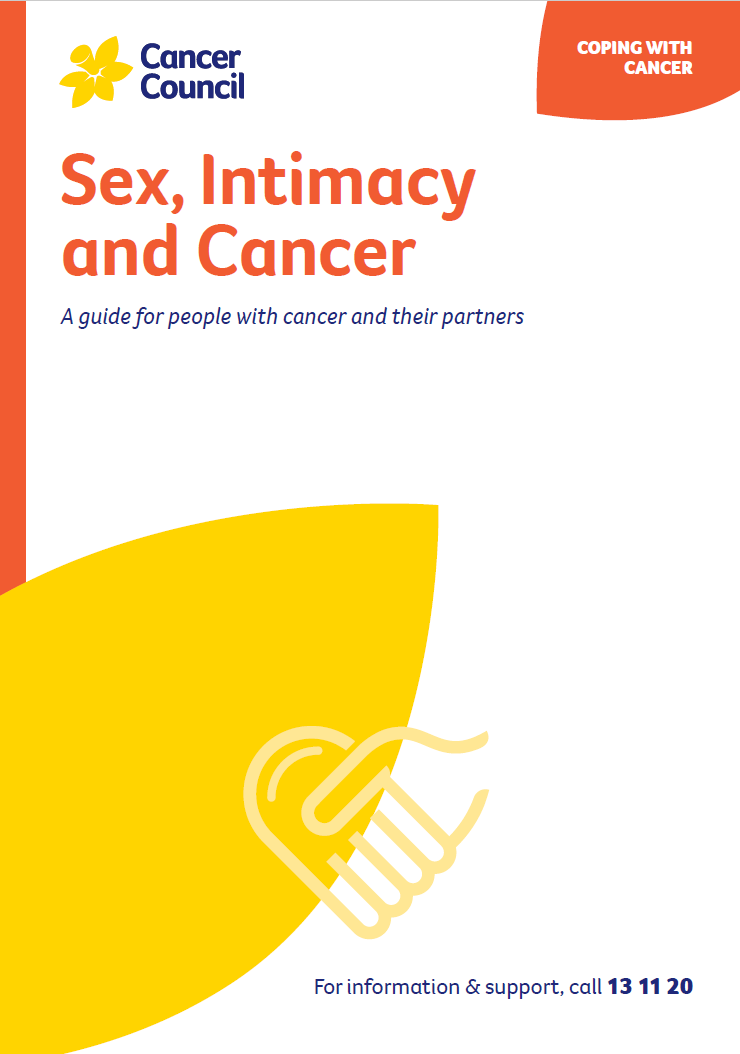- Home
- About Cancer
- Managing side effects
- Sex, intimacy and cancer
- Communicating with your partner
Communicating with your partner
Understanding relationship strain
Misunderstandings, different expectations and conflicting ways of dealing with change, can all cause tension within a relationship. The key to adjusting to sexual changes after cancer is communication.
Why talking openly is important
It may help to talk about how you’re both feeling, your concerns and your needs, as well as ways you can adapt intimacy and sexual activities during and after cancer treatment. Even people who are comfortable sharing their thoughts with their partner, may not have openly talked about sex before.
Why people avoid talking about sex
Common reasons people may avoid talking about sex include:
- embarrassment
- lack of time or privacy
- lack of confidence or fear of rejection
- fear of getting cancer
- waiting for the other person to mention it
- assuming that things are back to normal.
Avoiding silence and misunderstandings
It can seem easier to avoid talking about sex when you are both coping with the demands of cancer and treatment, but this often leads to frustration and confusion, as neither of you will feel like you are having your needs met. Let your partner know what you’re going through and how they can help you cope. It may help to talk about how your relationship is changing and that you both need time to adjust.
Choosing the right time to talk
Sometimes it’s better to have these talks outside the bedroom. To avoid any confusion or feelings of pressure, consider talking about sex at a time when you aren’t usually going to be having sex.
Tips for communicating with your partner
- It helps to set aside time for other types of intimacy.
- Plan to have a regular meal together or go for a walk.
- Try to focus on sensual activities that don’t involve penetrative sex, such as hugging, skin-to-skin contact or massage.
- If you need support talking to each other, consider counselling – call Cancer Council 13 11 20 or ask your doctor or nurse how to find a counsellor in your area.
- Listen to our podcast on Sex and Cancer below.
→ READ MORE: How to start a conversation about sex
Podcast: Sex and Cancer
Listen to more of our podcast for people affected by cancer
More resources
Dr Michael Lowy, Sexual Health Physician, Sydney Men’s Health, NSW; Gregory Bock, Clinical Nurse Consultant – Oncology Coordinator, Urology Cancer Nurse Coordination Service, Cancer Network WA; Anita Brown-Major, Occupational Therapist and Director, Thrive Rehab, VIC; Helena Green, Psychosexual Therapist and Clinical Sexologist, Insync for Life Psychology and Women Centre, WA; Dr Lisa Mackenzie, Clinical Psychologist, HNE Centre for Gynaecological Cancer, Hunter New England Local Health District, NSW; Dr Tonia Mezzini, Sexual Health Physician, East Obstetrics and Gynaecology, SA; Sophie Otto, Prostate Cancer Nurse Consultant – Central Adelaide Local Health Network (CALHN), SA; Giovanna Raco, 13 11 20 Consultant, Cancer Council Victoria; Kath Schubach, Urology Nurse Practitioner, VIC; Emily Stevens, Gynaecology Oncology Clinical Nurse Consultant, Southern Adelaide Local Health Network, Flinders Medical Centre, SA; Anja Vukovic, Clinical Specialist Social Worker, Gynaecological Oncology, Westmead Hospital, NSW; Alan White, Consumer; Kathleen Wilkins, Consumer; Merran Williams, Consumer.
View the Cancer Council NSW editorial policy.
View all publications or call 13 11 20 for free printed copies.

